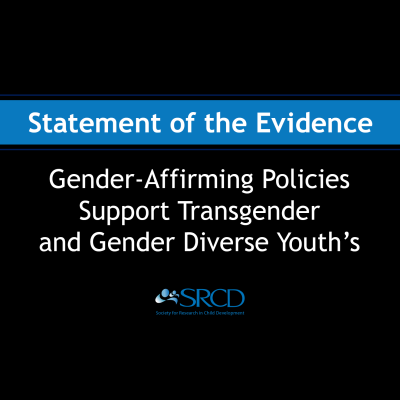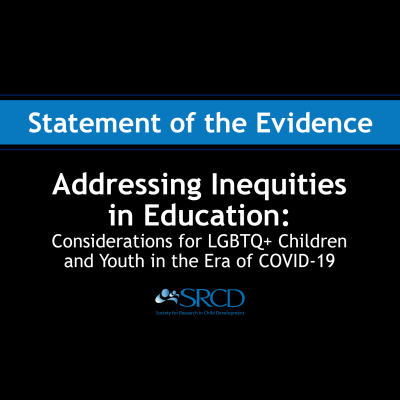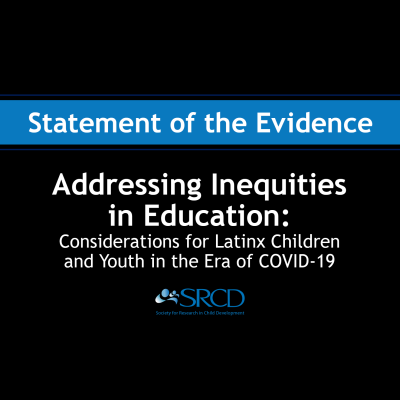Brief of Amici Curiae in Support of Plaintiffs-Appellees-Cross-Appellants and Affirmance | Bonnie Peltier v. Charter Day School, Inc.
Filed July 13, 2020
INTRODUCTION AND SUMMARY OF ARGUMENT
Amici address a narrow but important issue in this case: the effects that gender labels and gender-differentiated policies and practices can have on children—and on girls in particular—in school settings. Contrary to the Charter Day School’s arguments, developmental research suggests that policies and practices like the girl skirt requirement perpetuate and reinforce harmful gender stereotypes—such as that girls are fragile, should be treated differently than boys, and have an inferior place in society. And they impose significant burdens on female students.
As the plaintiffs’ brief explains, the Supreme Court and this Court consistently strike down similarly harmful and burdensome gender-based classifications as unlawful sex discrimination. United States v. Virginia, 518 U.S. 515, 533 (1996); Knussman v. Maryland, 272 F.3d 625, 636 (4th Cir. 2001). It is now settled that gender “classifications may not be used, as they once were, to create or perpetuate the legal, social, and economic inferiority of women.” Virginia, 518 U.S. at 534 (internal citation omitted); see Nevada Dep’t of Human Res. v. Hibbs, 538 U.S. 721, 736 (2003) (“stereotypes about women’s domestic roles . . . create[] a self fulfilling cycle of discrimination”). And “[g]ender classifications that appear to rest on nothing more than conventional notions about the proper station in society for males and females have been declared invalid time and again by the Supreme Court.” Knussman, 272 F.3d at 636.
Charter Day School’s girl skirt requirement fails the Supreme Court’s and this Court’s requirements. The record demonstrates that the school’s policy was designed to foster stereotyped views of women and girls. The school’s founder acknowledged that skirts help boys distinguish boys from girls, which is important because “females are to be treated courteously and more gently than boys.” JA413-14. And his reason why: girls are a “fragile vessel that men are supposed to take care of and honor.” JA414. Nor were these isolated comments. The Charter Day School defended the girl skirt requirement by arguing that it “help[ed] the children ‘act more appropriately’ towards [the] opposite sex” and provided “visual cues that signify sex distinction” to foster “respect between the two sexes.” JA1549-50; Defendants’ Memo. ISO MSJ at 40, D.Ct. Dkt. No. 159; see also, JA2742. For that reason, among others, the district court correctly recognized that the girl skirt policy hails from a bygone era and ignores the “changing community standards that have led to the near eradication of prohibitions on girls wearing pants.” JA2740-41.
Further, the girl skirt requirement imposes significant burdens solely on girls. In addition to the harms that the district court recognized (e.g., unable to play as freely during recess, needing to be conscious of how they sit, distracting from learning, being subject to cold temperatures in the winter) (JA2743), developmental research shows that gender classifications—particularly ones that emphasize harmful male/female stereotypes—can have serious adverse effects on academic, mental, and social development. Children, particularly those in school settings, are highly susceptible to gender-differentiated policies and practices. And the effects of these policies are not fleeting; research shows that they can have lifelong consequences.
INTERESTS OF AMICI CURIAE
The Society for Research in Child Development, the Society for the Psychological Study of Social Issues, the Cognitive Development Society, and the Society for Research on Adolescence respectively submit this brief as amici curiae in support of plaintiffs-appellees-cross appellants.1
Amici curiae are professional organizations and associations, comprised of thousands of scientists, researchers, scholars, and other professionals and members, that focus on research concerning child development, including psychological, cognitive, and social aspects of developmental science.
The Society for Research in Child Development (“SRCD”) is a professional research organization established in 1933 by the National Research Council of the National Academy of Sciences. With a membership of more than 5,500 scientists representing various disciplines and professions, SRCD is a respected source of scientific knowledge about human development. SRCD’s core mission is to advance the developmental sciences and promote the use of developmental research to improve human lives. An integral part of SRCD’s mission is to research, understand, and enhance child development. SRCD has extensively reviewed and analyzed research studies examining the effects of gender differentiated school policies (i.e. policies that impose different rules or treatment based on gender), including policies and practices perpetuating gender stereotypes, on children.
The Society for the Psychological Study of Social Issues (“SPSSI”) is a professional association founded in 1936. SPSSI has a membership of nearly 3,000 psychologists, social scientists, allied scholars, and policy professionals. SPSSI is a trusted source of research and education on the psychological aspects of critical social issues and psychological science. SPSSI encourages evidence-based policy-making, and it has served as a nongovernmental organization with consultative status at the United Nations since 1991. SPSSI members have long researched and studied the psychological impacts of gender discrimination and stereotyping on children, including within educational contexts.
The Cognitive Development Society (“CDS”) is a professional organization founded in 1998. CDS has 840 members, of which 87% are based in the United States and includes primary investigators and researchers working in educational institutions and universities, graduate students, and post-doctoral scholars. CDS promotes and represents the common professional interests of developmental psychologists, students, practitioners, and other professionals who engage in the study of change and continuity in the intellectual process that supports mental life and psychological well-being. CDS’s primary focus is the cognitive development of infants, children, and adolescents, including cognitive developmental processes related to gender and the impacts of gender stereotyping and gender discrimination on children’s self-concepts and concepts of others.
The Society for Research on Adolescence (“SRA”) is a community of researchers whose goals are to advance understanding of adolescence and enhance the well-being of youth in a globalized world. SRA promotes high-quality research that considers the biological, psychological, and sociocultural aspects of development in context. SRA aims to lead and shape scientific and public discourse on youth and adolescence and to guide parenting, schooling, programs, and policies. In order to achieve these goals, SRA fosters the professional development and growth of its members and is relevant, visible, diverse, and global in perspective.


